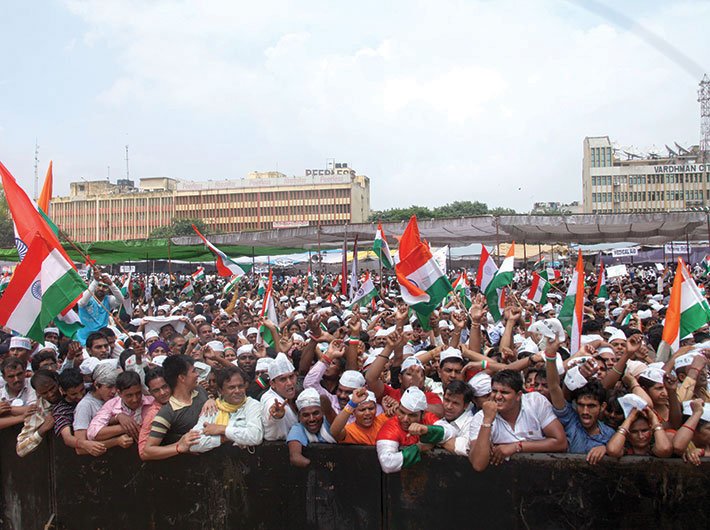In a mere five years, AAP has shown us all, from the potential in politics to its realities
The Aam Aadmi Party (AAP) celebrated its fifth anniversary on November 26. AAP has been a unique phenomenon in our politics: it’s the only startup of its kind, it’s the only party in recent decades to emerge out of a popular agitation, it’s the only party (outside Sikkim) to win nearly all seats going to the polls.
Five years ago, AAP stood for all the hopes that still remained in Indian politics; today it is reduced to a reminder of all the disappointments of politics. Most parties took decades to complete this journey. That way, it is better placed than any other party to act as a lighthouse in our stormy political shores: it throws light on all the dangerous reefs and treacherous shoals and also shows the path.
AAP, and more properly speaking, its predecessor, the anti-corruption agitation of 2011, signaled the arrival of a new breed of political leadership. They were young to middle-aged, from the urban professional middle-class, largely free of left-right ideologies, not associated with parties or political families, and were concerned about the issues of day-to-day matters as much as the state of the nation. Their coming together was largely spontaneous too.
The move to convert the agitation into a political party was debatable. But it was largely welcomed by people. The new party soon showed what was wrong with the rest. For example, when most parties (barring the CPI) have shown no willingness to come under the ambit of the RTI, AAP was open to it. When all parties are cagey about the sources of their funds, AAP disclosed where every rupee in its coffers was coming from. This freshness, with its promise of a new kind of politics, helped AAP connect with the masses of all castes, classes and even all political hues.
At the first attempt in 2013, the AAP could not get the top position though it did come to power. In the second attempt in 2015, even in the face of the supreme popularity of Narendra Modi, it won a record 67 out of Delhi’s 70 seats. It was the kind of victory in which most citizens saw their own victory, and celebrated.
The downside started with personal frailties. Arvind Kejriwal’s actions saw AAP metamorphosing into a cult-based party, with him as its charismatic guru-like figure. Prashant Bhushan, Yogendra Yadav and Anand Kumar were dropped from the party for demanding transparency in processes and decisions. The unsavory past of the many in its motley crew also started catching up.
Moreover, Kejriwal saw himself as the one opposition leader who would take on Modi, and recklessly sought to expand the party’s footprint everywhere, rather than perform, deliver and consolidate in Delhi first. This meant taking the confrontationist way, bickering with the centre on every trivial matter and wasting beginner’s energy, along with people’s trust, on this daily grind. Today, in the eyes of many of those who not only voted but also campaigned for him, Kejriwal is a caricature of his former self.
This reflects in governance of the capital. To take the most visible example, consider the beyond-callous state of air pollution. Several factors have conspired to make Delhi’s air so deadly, but prime among them is the fact that it does not figure in the list of the AAP government’s priorities.
At just past the half-way mark of the current term, these weaknesses overshadow some unusual achievements of the AAP government. One is a bottom-up approach to budgeting through mohalla sabhas – something Kejriwal had once experimented with in a Delhi locality when he was running an NGO. The other is the spike in budget allocation for two crucial sectors everyone talks about: health and education. In its first budget the allocations for these two went up by nearly 50 percent.
But the damage has been done by now – not only to the AAP, but more importantly to any new political initiative aiming to harness the public spirit for better governance. Swaraj Abhiyan of Bhushan, Yadav and Kumar, and other such movements of the future, will have to contend with popular disenchantment with high-sounding newbies.
AAP has shown why the cliché of ‘the more things change, the more they remain the same’ still remains in currency.
ashishm@governancenow.com
(The article appears in the December 15, 2017 issue)

